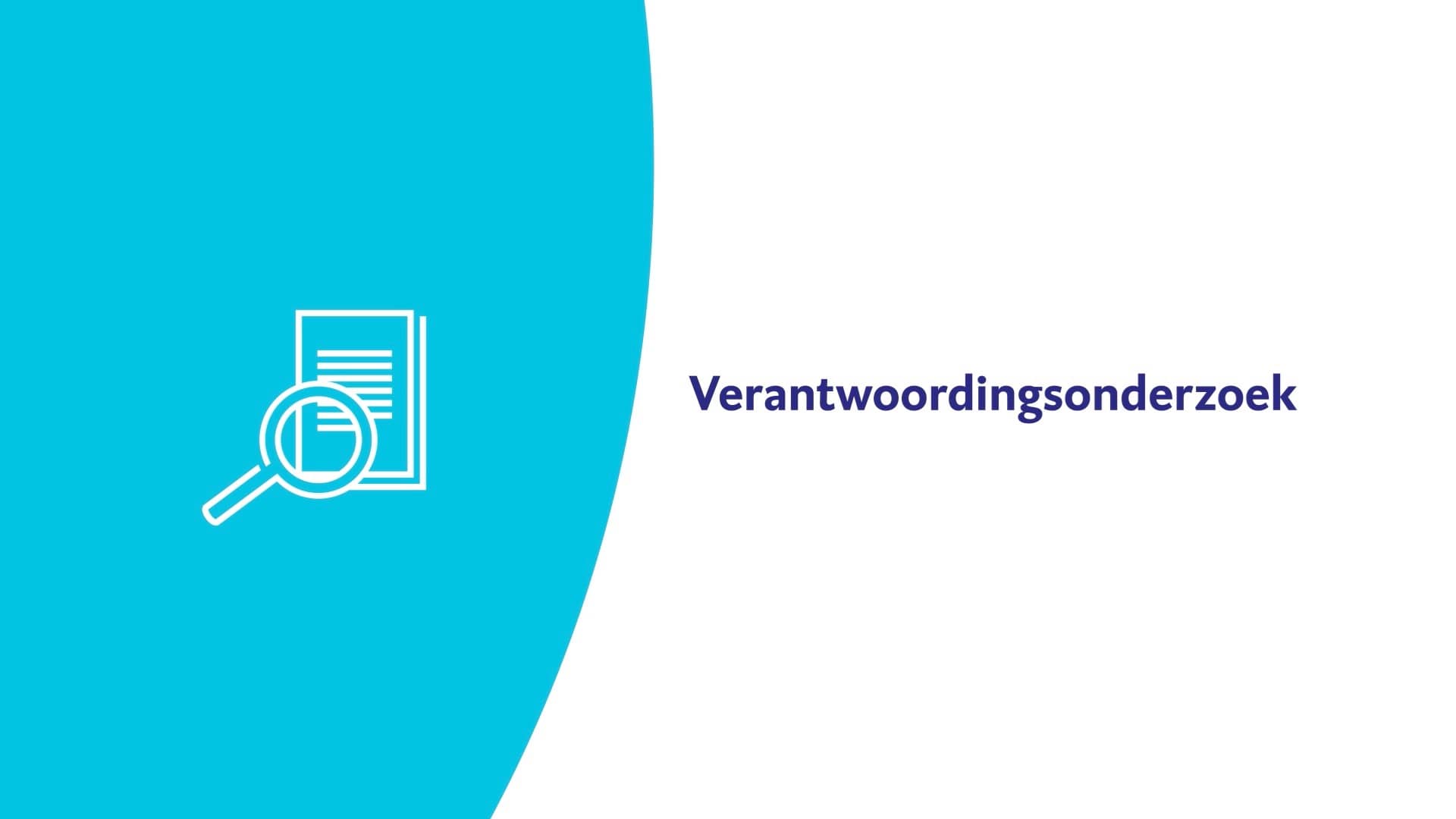All ministers submit annual reports to parliament each year to account for the tax money they receive and spend. The Netherlands Court of Audit checks that the money is spent regularly, i.e. in accordance with the regulations. We also audit the ministries’ operational management and determine whether the policies have had the intended results.
Video

The Dutch government receives about 280 billion euros every year. It also spends about 280 billion euros every year. On Accountability Day, the Netherlands Court of Audit explains whether the government spent all that money economically, efficiently and effectively.
It does so as follows: On Budget Day, the ministers present their budgets and plans for the coming year. On Accountability Day, 18 months later,
when the money has been spent, the ministers present their annual reports. The Court of Audit examines the annual reports
as the independent auditor of government. It determines whether taxpayers got value for money. It asks three questions:
- Was the money spent in accordance with the rules?
- Was the spending properly organised at the ministries?
- And did the policy deliver the promised results?
The Court of Audit gives an independent opinion on all three questions.
Our work helps parliament scrutinise the government and tells taxpayers whether their taxes were spent economically, efficiently and effectively.
You can read about the government's performance in recent years on our website at english-rekenkamer.nl.
The Court of Audit helps taxpayers understand what the government does and how it functions. Because we believe trust is based on understanding.
Our own audits and reliance on third-party audits
We audit the quality of the information presented in the ministers’ annual reports and the quality of the ministries’ operational management. Where necessary, these accountability audits rely on audits performed by third parties, such as the Central Government Audit Service.
Budget and accountability cycle: 18 months
The government presents its plans for the coming budget year on Budget Day, the third Tuesday in September. Some 18 months later on Accountability Day, the third Wednesday in May, the ministries issue their annual reports to account for what they did during the budget year. On the same day, we publish ‘State of Central Government Accounts‘ and our reports on the individual ministries’ annual reports.
State of Central Government Accounts
Our report on the state of central government accounts contains our audit opinions on the government’s financial accounts. An unqualified opinion confirms that the government’s statement of income and expenditure and trial balance do not contain material errors. We also inform parliament about the ministries’ operational management and the account rendered by the ministers in their annual reports. If everything is in order, parliament can then grant discharge to the ministers, releasing them from responsibility for their financial management during the year.
Reports on the ministries’ annual reports
Our reports on the ministries’ annual reports explain whether the ministers spent tax money in accordance with the regulations. We determine whether the financial information presented in the annual reports and trial balances is complete and correct. We also report on the ministries’ operational management and express an opinion on the policy information provided in the annual reports.
Our reports consider the errors and uncertainties that we find in the annual reports and trial balances. They also look at problems, or ‘shortcomings’ as we refer to them, in the ministries’ operational management. Our reports inform parliament and encourage the ministers to improve their operational management.
Assessment frameworks
To determine whether the ministry's operations were deficient, we developed standards frameworks for a number of processes. For example, frameworks for the IT related audits on lifecycle management, algorithms, and digital identity: